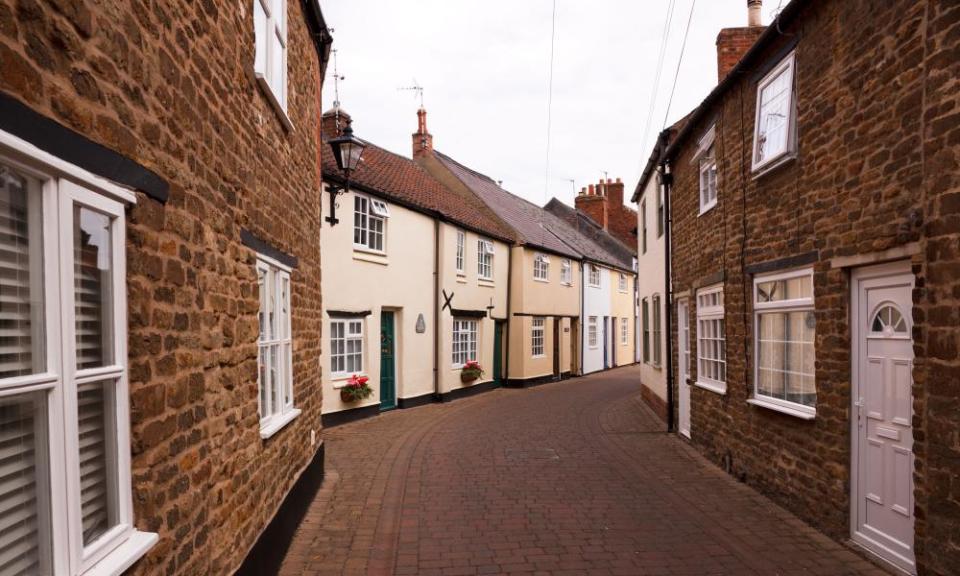UK house prices fall at fastest annual rate since 2009

UK house prices have fallen at their fastest annual rate since the aftermath of the financial crisis in 2009, with experts at Nationwide warning that the squeeze on household budgets will make it hard to regain momentum soon.
The price of an average property dropped 3.1% to £257,122 over the year to March, according to Nationwide Building Society’s house price index. That is compared with a 1.1% annual decline in February.
Related: Mansion madness: Los Angeles realtors in sell-off frenzy as wealth tax looms
Prices also fell on a month-on-month basis, dropping 0.8% since February. It marked the seventh monthly decline in a row and leaves prices 4.6% below their most recent peak in August, before the housing market was rocked by Liz Truss’s disastrous mini-budget.
“Since then, activity has remained subdued – the number of mortgages approved for house purchase remained weak at 43,500 cases in February, almost 40% below the level prevailing a year ago,” Robert Gardner, Nationwide’s chief economist, said.
He said it could take some time before prices rebound, as household finances come under pressure from rising bills and higher mortgage rates.
“It will be hard for the market to regain much momentum in the near term since consumer confidence remains weak and household budgets remain under pressure from high inflation,” Gardner said. “Housing affordability also remains stretched, where mortgage rates remain well above the lows prevailing at this point last year.”
However, there could be some hope on the horizon, as fresh data released on Friday morning showed the UK avoided a recession at the end of last year, with national output rising 0.1% in the final three months of 2022. That is compared with initial estimates of no growth in GDP over the period, according to the Office for National Statistics data.
Nationwide said all regions across the UK still experienced a slowdown in house prices in the first three months of the year, with most recording small annual declines. Scotland remained hardest hit by widespread house price weakness, with prices falling 3.1% in the first quarter compared with a year earlier. The West Midlands, meanwhile, was the strongest-performing region, experiencing a 1.4% increase in the first quarter.
However, a wider north-south divide has emerged. While prices in northern England were flat, prices in southern England experienced a 1.1% decline. That decline was seen in areas including the south-west, outer south-east, outer metropolitan, London and East Anglia.
Some estate agents are predicting an uptick by Easter, saying lower prices could entice buyers. “March’s fall in house prices is not unexpected but all signs point to this motivating buyers as the housing market starts gearing up for the traditionally busy Easter period,” said Nicky Stevenson, the managing director at the national estate agent group Fine & Country.
“An early indication came from the Bank of England this week as mortgage approvals in February rose for the first time in six months. There is no reason to think this is a blip either, as despite the latest base rate rise from the Bank of England, mortgage lenders are still cutting their rates – and this will only provide further encouragement that now is a good time to move home.”

 Yahoo Finance
Yahoo Finance 